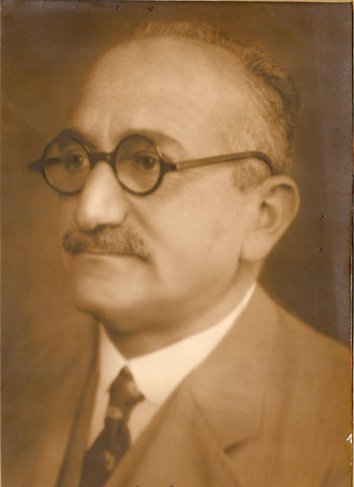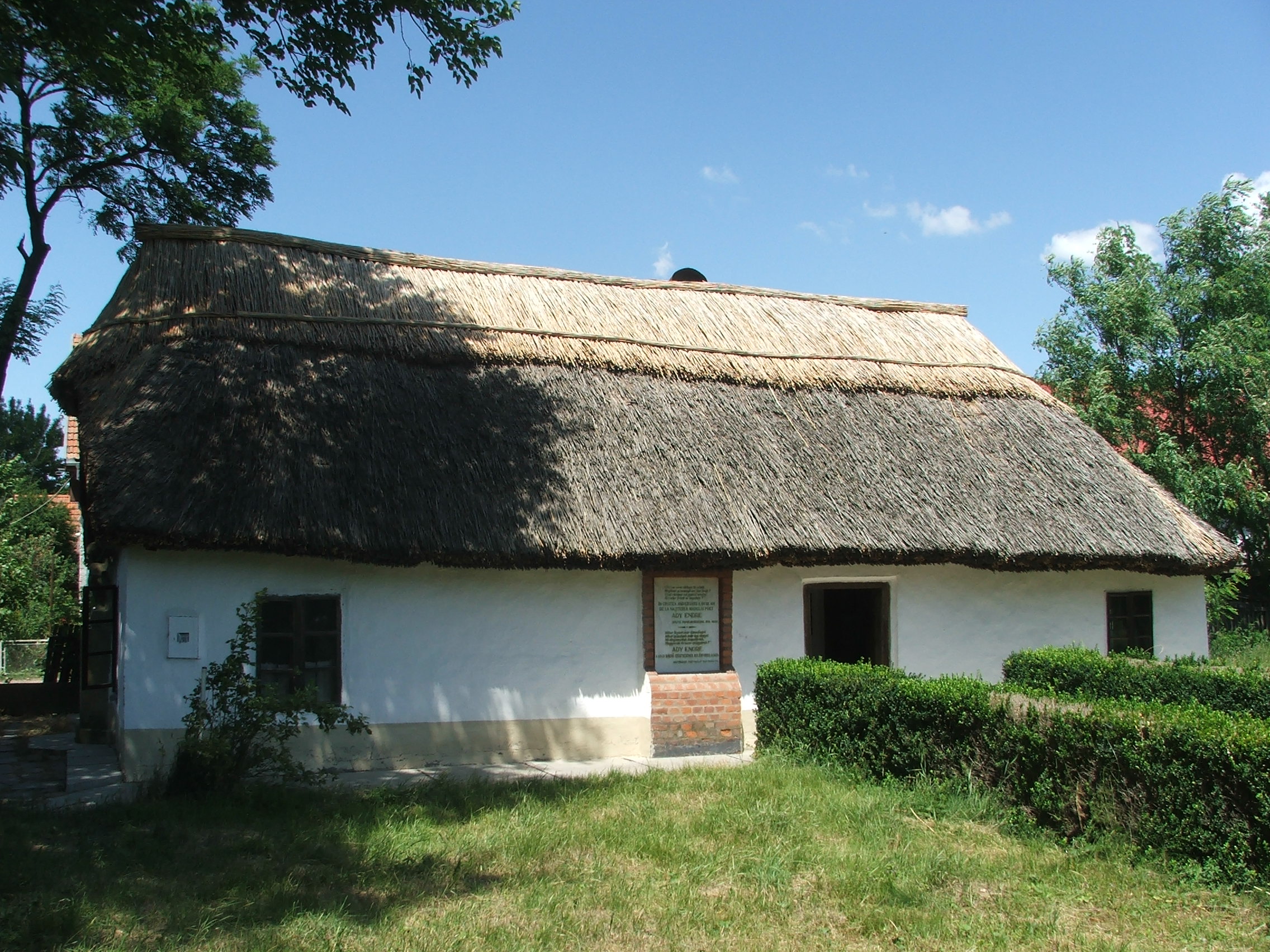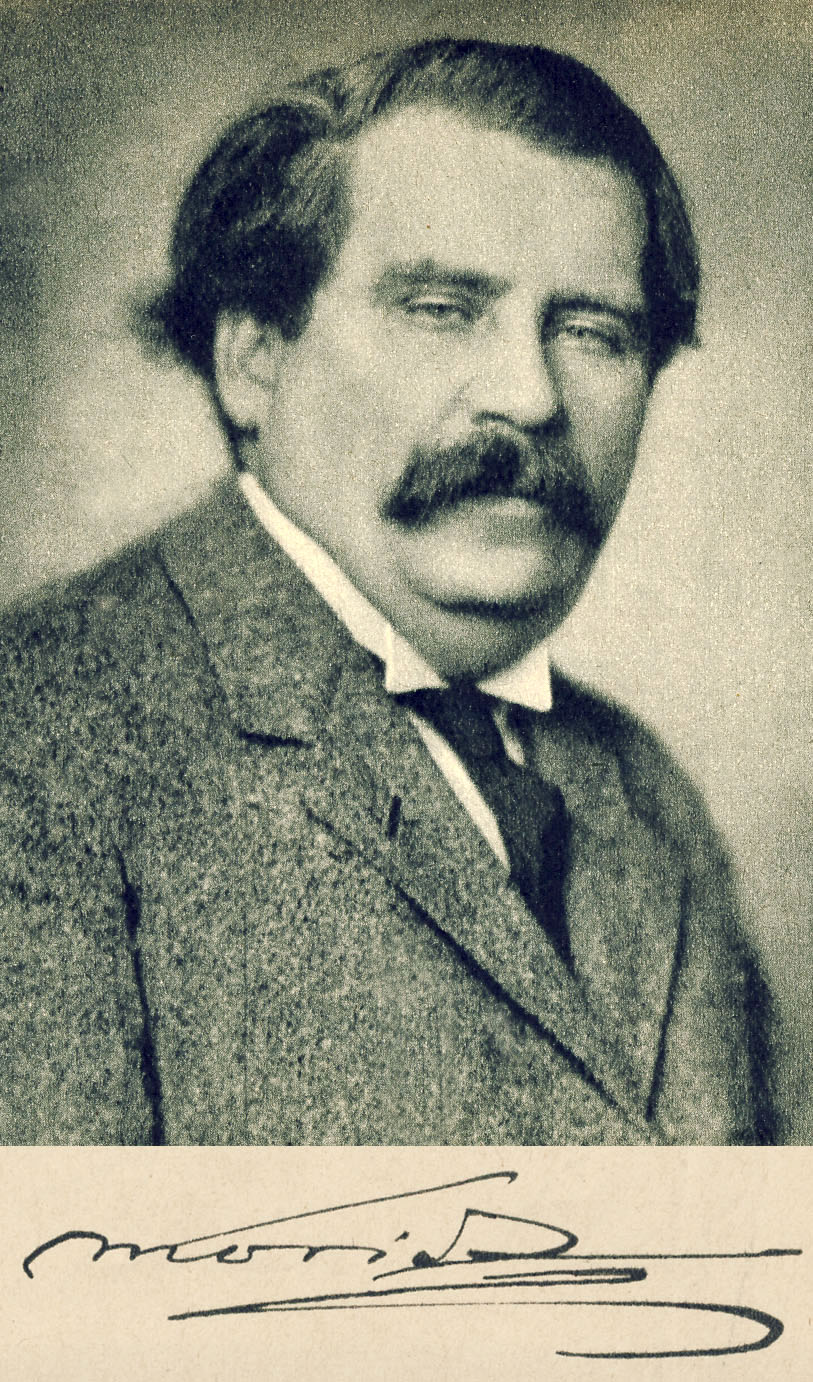|
Nyugat
''Nyugat'' ( Hungarian for ''West''; pronounced similar to ''New-Got''), was an important Hungarian literary journal in the first half of the 20th century. Writers and poets from that era are referred to as "1st/2nd/3rd generation of the NYUGAT". History and profile ''Nyugat'' was founded in 1908 and initially edited by Ignotus (Hugo Veigelsberg), Ernő Osvát, and Miksa Fenyő. The magazine was receptive and inspired by the styles and philosophies then current in Western Europe, including naturalism, Symbolism, and impressionism. ''Nyugat'' published both poetry and prose writing. The first generation included the poets Endre Ady, Árpád Tóth, Mihály Babits, Dezső Kosztolányi, Gyula Juhász, Géza Gyóni and the novelists Gyula Krúdy and Zsigmond Móricz. During World War I, ''Nyugat'', was challenged by leftist literary circles, particularly the grouping around Lajos Kassák who published first '' A Tett'' and then '' MA''. This left ''Nyugat'' frustrated and depres ... [...More Info...] [...Related Items...] OR: [Wikipedia] [Google] [Baidu] |
László Németh
László Németh (18 April 1901 – 3 March 1975) was a Hungarian dentist, writer, dramatist and essayist. He was born in Nagybánya the son of József Németh (1873–1946) and Vilma Gaál (1879–1957). Over the Christmas of 1925, he married Ella Démusz (1905–1989), the daughter of János Démusz, a keeper of a public house. Between 1926 and 1944 they had six daughters, but two of them died in infancy. In 1959 he visited the Soviet Union. In the last part of his life he lived and worked in Tihany. He died from a stroke on 3 March 1975 in Budapest and was buried in Farkasréti Cemetery, Budapest, where he shares a grave with his wife. Medical and teaching career Németh was awarded a degree in dentistry in 1925, and worked in Szent János ( en, Saint John) Hospital. He founded a dental practice, but later became a medical practitioner for schools. In 1926 he opened his dental surgery, although he continued to work as a freelance at the Saint John's Hospital in the ... [...More Info...] [...Related Items...] OR: [Wikipedia] [Google] [Baidu] |
Gyula Illyés
Gyula Illyés born ''Gyula Illés'' (2 November 1902 – 15 April 1983) was a Hungarian poet and novelist. He was one of the so-called ''népi'' ("from the people") writers, named so because they aimed to show – propelled by strong sociological interest and left-wing convictions – the disadvantageous conditions of their native land. Early life He was born the son of János Illés (1870 – 1931) and Ida Kállay (1878 – 1931) in Tolna County. His father was Catholic, while the Kállays were Calvinists. János was initially a shepherd like his father, then learned the trade of blacksmith, and took jobs in various manors making repairs, and later becoming a supervisor of blacksmiths, stokers and machinists. Ida came from a mainly peasant family, although the Kállays also gave soldiers and preachers to the country. His maternal grandfather was a wheelwright in the manor of Felsőrácegrespuszta. He was their third child and spent his first nine years a ... [...More Info...] [...Related Items...] OR: [Wikipedia] [Google] [Baidu] |
Miksa Fenyő
Miksa Fenyő (December 8, 1877 – April 4, 1972) was a Hungarian writer and intellectual, served as a member of parliament (elected 1931) in the early 1930s, and was appointed as a Minister of Trade and Commerce under the short-lived (24 hours) government cabinet of Prime Minister János Hadik in 1918. He was also mentor and friend to Hungary's second most important poet laureate (Endre Ady), co-founded the most important periodical in Hungarian literature (''Nyugat'': "West"), and was an instrumental figure in the Hungarian Federation of Industrialists (GYOSZ) prior to World War II and its last managing director during the brief interlude between 1945 and 1947, whereafter he was forced to flee into exile out of concerns for his personal safety after being informed that Stalin wanted him and other ''petit-bourgeoise'' to be sent to Siberia. Biography Fenyő was one of eight children born in Mélykút ("Deepwell"), Hungary into a hard-working Jewish tailoring family that produc ... [...More Info...] [...Related Items...] OR: [Wikipedia] [Google] [Baidu] |
Endre Ady
Endre Ady (Hungarian: ''diósadi Ady András Endre,'' archaic English: Andrew Ady, 22 November 1877 – 27 January 1919) was a turn-of-the-century Hungarian poet and journalist. Regarded by many as the greatest Hungarian poet of the 20th century, he was noted for his steadfast belief in social progress and development and for his poetry's exploration of fundamental questions of the modern European experience: love, temporality, faith, individuality, and patriotism. Biography Ady was born in Érmindszent, Szilágy County (part of Austria-Hungary at the time; now a village in Căuaș commune, Satu Mare County, Romania, called Adyfalva in Hungarian and Ady Endre in Romanian). He belonged to an impoverished Calvinist noble family. Endre was the second of three children. The eldest, a girl named Ilona, died at an early age. The author and poet Mariska Ady (1888-1977) was a niece of Endre Ady. Between 1892 and 1896, Ady attended the Calvinist College in Zilah (today Zalău, Rom ... [...More Info...] [...Related Items...] OR: [Wikipedia] [Google] [Baidu] |
Hungary
Hungary ( hu, Magyarország ) is a landlocked country in Central Europe. Spanning of the Carpathian Basin, it is bordered by Slovakia to the north, Ukraine to the northeast, Romania to the east and southeast, Serbia to the south, Croatia and Slovenia to the southwest, and Austria to the west. Hungary has a population of nearly 9 million, mostly ethnic Hungarians and a significant Romani minority. Hungarian, the official language, is the world's most widely spoken Uralic language and among the few non-Indo-European languages widely spoken in Europe. Budapest is the country's capital and largest city; other major urban areas include Debrecen, Szeged, Miskolc, Pécs, and Győr. The territory of present-day Hungary has for centuries been a crossroads for various peoples, including Celts, Romans, Germanic tribes, Huns, West Slavs and the Avars. The foundation of the Hungarian state was established in the late 9th century AD with the conquest of the Carpathian Basin by Hungar ... [...More Info...] [...Related Items...] OR: [Wikipedia] [Google] [Baidu] |
Zsigmond Móricz
Zsigmond Móricz (; 29 June 1879, Tiszacsécse – 4 September 1942) was a major Hungarian novelist and Social Realist. Biography Zsigmond Móricz was born in Tiszacsécse in 1879 to Bálint Móricz and Erzsébet Pallagi. On his mother's side, he came from an impoverished but ancient noble family while his father was the descendant of serfs.Judit Frigyesi (2000Béla Bartók and turn-of-the-century Budapest, University of California Press. p. 47 He studied at ''Debreceni Református Kollégium'' (1891–1893), ''Sárospataki Kollégium'' (1894–1896), and in '' Kisújszállás'' and '' Szakoly'' (1896–1898). In 1899, he enrolled at ''Debreceni Református Kollégium'' to study theology, but transferred into law after only six months. In 1903, he began to work as a journalist at the newspaper ''Az Újság'', remaining there until 1909. During the revolutionary government after World War I, he was vice president of the Vörösmarty Academy. After its fall, his plays wer ... [...More Info...] [...Related Items...] OR: [Wikipedia] [Google] [Baidu] |
Lajos Kassák
Lajos Kassák (March 21, 1887 – July 22, 1967) was a Hungarian poet, novelist, painter, essayist, editor, theoretician of the avant-garde, and occasional translator. He was among the first genuine working-class writers in Hungarian literature. Self-taught, he became a writer within the socialist movement and published journals important to the radical intellectual culture of Budapest in the early 1900s. Although he cannot be fully identified with any single avant-garde movement, he adopted elements of expressionism, futurism and dadaism. He has been described as a well-acclaimed artistic virtuoso whose strong achievements and socially committed activities interlaced with a consistent artistic vibrancy. He set the pace for the development of the avant-garde artistic wing in Hungary. Kassák is also considered to be a pioneer of a number of new developments in the Hungarian avant-garde and modernist art scene. It has been said that Kassák’s legacy was stunted and unrec ... [...More Info...] [...Related Items...] OR: [Wikipedia] [Google] [Baidu] |
Dezső Kosztolányi
Dezső Kosztolányi (; March 29, 1885 – November 3, 1936) was a Hungarian writer, journalist, translator and also a speaker of Esperanto. He wrote in all literary genres, from poetry to essays to theatre plays. Building his own style, he used French symbolism, impressionism, expressionism and psychological realism. He is considered the father of futurism in Hungarian literature. Biography Kosztolányi was born in Szabadka, Austria-Hungary (today Subotica, Serbia) in 1885. The city served as a model for the fictional town of Sárszeg, in which he set his novella ''Skylark'' as well as ''The Golden Kite''. He was the child of Árpád Kosztolányi (1859–1926), physics and chemistry professor and headmaster of a school, and Eulália Brenner (1866–1948), who was of French origin. He started high school in Szabadka but because of a conflict with his teachers he was expelled, and so he graduated as a private student in Szeged. Kosztolányi moved to Budapest in 1903, where ... [...More Info...] [...Related Items...] OR: [Wikipedia] [Google] [Baidu] |
Mihály Babits
Mihály Babits (; 26 November 1883 – 4 August 1941) was a Hungarian poet, writer and translator. His poems are well known for their intense religious themes. His novels such as “The Children of Death” (1927) explore psychological problems. Biography Babits was born in Szekszárd. He studied at the University of Budapest from 1901 to 1905, where he met Dezső Kosztolányi and Gyula Juhász. He worked to become a teacher and taught at schools in Baja (1905–06), Szeged (1906–08), Fogaras (1908–11), Újpest (1911), and Budapest (1912–18). His reputation for his poems in the literary life started in 1908. He made a trip to Italy in the same year, which made him interested in Dante; he made several other trips in later years. This experience led him to translate Dante's ''Divine Comedy'' (''Hell'', 1913, ''Purgatory'', 1920, and ''Paradise'', 1923). Briefly after the Hungarian Revolution of 1919 he became a Professor of Foreign Literature and ... [...More Info...] [...Related Items...] OR: [Wikipedia] [Google] [Baidu] |
Árpád Tóth
Árpád Tóth (14 April 1886 – 7 November 1928) was a Hungarian poet and translator. Tóth went to Gymnasium (high school) in Debrecen and then studied German and Hungarian at the University of Budapest. In 1907, his poems began to appear in the papers A Hét and Vasárnapi Újság and after 1908 in Nyugat. In 1911, he became a theater critic for the paper Debreceni Nagy Újság. In 1913, he became a tutor to a wealthy family and received a little income from writing but still lived in poverty. Tuberculosis led him to rest at the Svedlér Sanitorium in the Tatra Mountains. During the period of the revolutionary government after World War I, he became secretary of the Vörösmarty Academy, but lost the position and couldn't find new work after the government's fall. He remained poor and sick with tuberculosis for the rest of his life, succumbing to the disease in Budapest in 1928. His prolonged suffering led him to consider suicide at one point – although he did jo ... [...More Info...] [...Related Items...] OR: [Wikipedia] [Google] [Baidu] |
Lőrinc Szabó
Lőrinc Szabó de Gáborján ( hu, gáborjáni Szabó Lőrinc ; Miskolc, 31 March 1900 – Budapest, 3 October 1957) was a Hungarian poet and literary translator. Biography He was born in Miskolc as the son of an engine driver, Lőrinc Szabó sr., and Ilona Panyiczky. The family moved to Balassagyarmat when he was 3 years old. He attended school in Balassagyarmat and Debrecen. He studied at the ELTE in Budapest where he befriended Mihály Babits. He didn't finish his studies; instead he began to work for the literary periodical ''Az Est'' in 1921, shortly after he married Klára Mikes, the daughter of Lajos Mikes. He worked there until 1944. Between 1927 and 1928 he was a founder and editor of the periodical ''Pandora''. His first published poems appeared in the 1920s in the ''Nyugat'' ("The West"). His first book of poetry was published in 1922 under the title ''Föld, erdő, Isten'' ("Earth, Forest, God") and received considerable success. He got the Baumgarten Award i ... [...More Info...] [...Related Items...] OR: [Wikipedia] [Google] [Baidu] |
Miklós Radnóti
Miklós Radnóti (born Miklós Glatter; 5 May 1909 – November 1944) was a Hungarian poet and teacher. He was murdered in the Holocaust. Biography Miklós Glatter was the son of a vendor of the textile business company Brück & Grosz in Budapest. He was born in the 13th district quarter Újlipótváros of the Royal Hungarian capital city of Austria-Hungary. At birth, his twin brother was born dead and his mother died soon after childbirth. He spent most of his childhood years with his aunt's family whose husband Dezső Grosz was one of the owners of the textile company in which his father worked until his death in 1921. Radnóti attended primary and secondary school in his place of birth and continued his education at the high school for textile industry in Liberec from 1927–28 on his uncle's advice. Then he worked as commercial correspondent in the familiar textile business company until 1930. Ultimately, Radnóti was able to prevail with desire for another education an ... [...More Info...] [...Related Items...] OR: [Wikipedia] [Google] [Baidu] |





